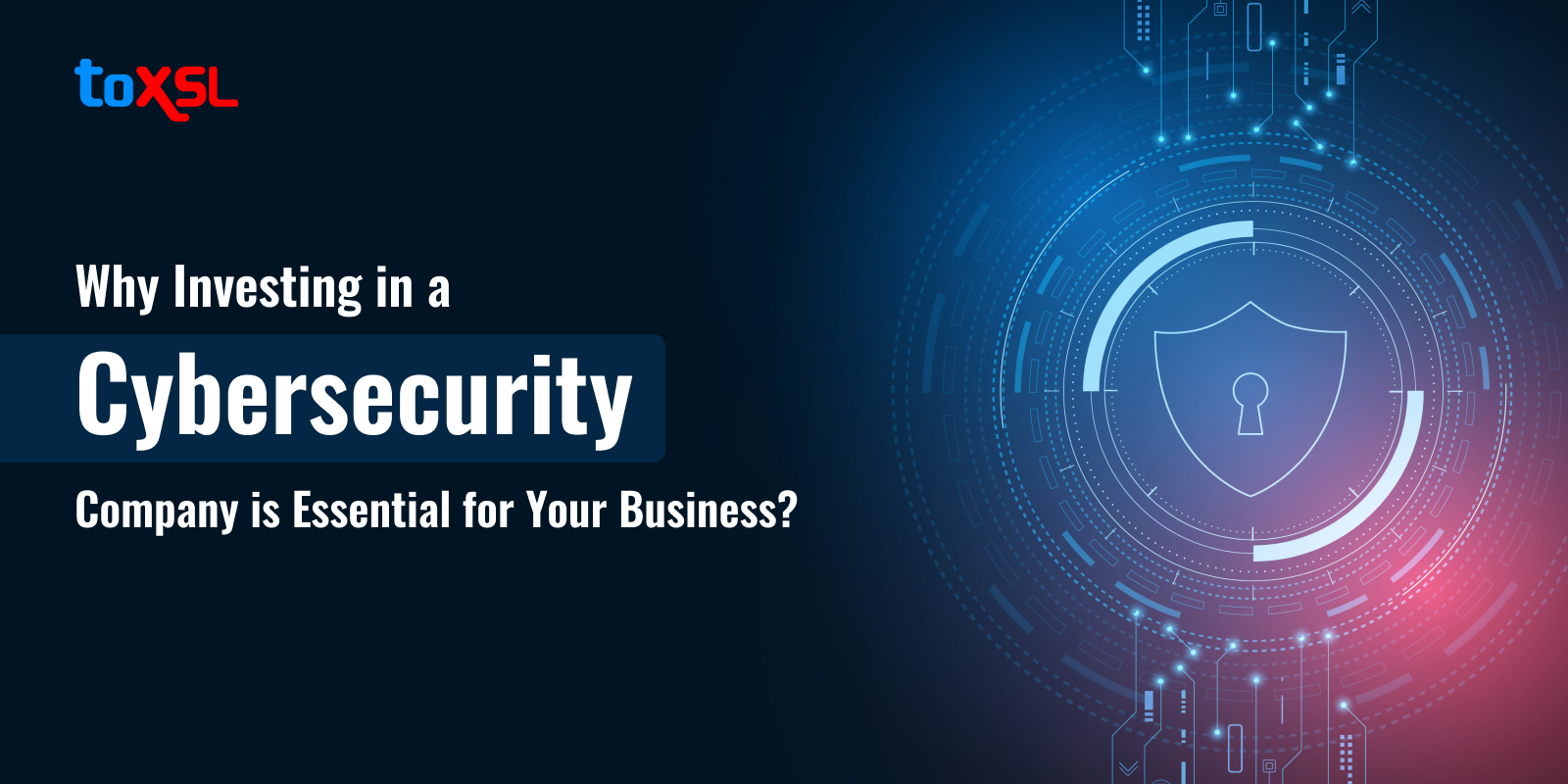- Aug 08, 2024
- Cybersecurity
- 1858
Share this post on:

As we are advancing into the new age of digital transformation, companies are adopting leading-edge technologies such as cloud, mobile, and big data; at the same time, a new wave of cyberattacks is limiting the deployment of these technologies. Cybersecurity has become a serious issue as cyber threats have exponentially increased globally.
Cybersecurity statistics are alarming. According to a data breach report, U.S. companies face an average cost of $9.44 million per data breach incident.
According to IBM's study, the causes of data breaches break down as follows: 51% result from malicious attacks (both internal and external), 25% stem from IT or business process failures, and 24% are attributed to human error. Hence, there is no doubt that cybersecurity is no longer an option; it is the need of the hour for every business.
But the question is, “What are the best practices for cybersecurity?”. What are the best strategies for implementing Cybersecurity? What are the benefits of Cybersecurity? What is the impact of cyber attacks on businesses? Well, by the end of this blog, you will have all the answers to all your questions.
What are the types of Cyber Attacks?
Cyberattacks, an attempt by cybercriminals, target a wide range of victims, from users to businesses to governments. Usually, their motive is to obtain financial gains and access sensitive or private data, including intellectual property (IP), customer data, or payment details. Let us learn about a few of the most common types of cyberattacks.
Malware
Malware, short for "malicious software," is a broad term encompassing various types of harmful programs designed to infiltrate and damage computer systems. These programs can take many forms and serve different malicious purposes. They include viruses, worms, trojans, spyware, and adware. Malware can enter a system through various channels, including email attachments, infected websites, or compromised software downloads. Once installed, malware can cause significant damage, such as stealing sensitive data, disrupting system operations, or providing unauthorized access to attackers.
Ransomware
Ransomware is a specific type of malware that has gained notoriety in recent years due to its potentially devastating impact. This form of cyber attack encrypts a victim's files or entire system, effectively holding the data hostage. The attacker then demands a ransom payment, usually in cryptocurrency, in exchange for the decryption key. The key characteristics of ransomware attacks include rapid encryption, ransom demands, time pressure, and potential data leaks. Ransomware can enter a system through similar vectors as other malware, but phishing emails and exploit kits are particularly common delivery methods. The impact of ransomware can be severe, potentially causing significant financial losses, operational disruptions, and reputational damage.
Phishing
Phishing is a type of social engineering attack that aims to trick individuals into revealing sensitive information or taking actions that compromise security. Unlike malware or ransomware, which primarily target technical vulnerabilities, phishing exploits human psychology and trust. The common characteristics of phishing attacks include impersonation, urgency, deceptive links, malicious attachments, and requests for sensitive information. The success of phishing attacks often relies on volume and persistence. While many recipients might recognize and ignore phishing attempts, attackers only need a small percentage of targets to fall for the scam for it to be profitable.
Impact of Cyberattacks on Business
A successful cyberattack can cause massive threats to businesses, leading to various types of threats. Having an understanding of these threats can help businesses fall victim to them, saving themselves from the impact of cyber crimes. Let us shed some light on the impact that cyber attacks can have on businesses.
Financial Damage: The most immediate and tangible consequence of a cyber attack is often financial loss. Cybercriminals can steal funds from a user's or company’s accounts and cryptocurrency wallets. Sometimes, businesses have to pay a hefty amount to regain access to their systems and data. Moreover, data breaches can result in substantial fines for non-compliance with data protection regulations like GDPR or CCPA. Further, investigation related to the breach and repairing systems can be massive. Overall, businesses might have to face revenue losses during and after an attack.
Reputation Damage: Perhaps even more harmful than immediate financial losses is the long-term damage to a company's reputation. Customers can lose faith in a company's ability to protect their personal information. This leads to reduced loyalty and trust in business. High-profile cyber attacks often attract high media attention, potentially damaging a brand's image for years. Moreover, security breaches can shake investor confidence, potentially leading to decreased stock values and difficulty securing future funding. Business partners may reconsider their relationships with affected companies, fearing that the security vulnerabilities could impact their operations. Additionally, competitors may take advantage of a company's misfortune, positioning themselves as more secure alternatives.
Operational Disruptions: Cyber attacks can severely damage a business's ability to function normally. These attacks often make systems inoperable, leading a company's operations to a standstill. Companies may lose valuable business data, employees may be unable to perform their duties, or they might need to divert their efforts to recovery tasks. Moreover, if a company's systems are compromised, it may be unable to fulfil orders or maintain regular communication with suppliers and customers. In the aftermath of an attack, businesses have to implement new processes and security measures, resulting in slow operations and significant adjustment periods.
Top Reasons to Invest in Cybersecurity
The key to retaining your customers is keeping your customer’s data safe and maintaining privacy. We live in a world where data security is necessary, as data is stored, shared, and accessed through the cloud. Protecting sensitive data, ensuring operational continuity, and safeguarding customer trust are just a few reasons why businesses are increasingly allocating resources to robust cybersecurity measures. Let us learn the reasons why businesses must invest in cybersecurity.
1. Reduced Risk of Cyber Attacks
The primary benefit of investing in cybersecurity is the significantly reduced risk of falling victim to cyber-attacks. By implementing comprehensive security measures, businesses can protect sensitive data from theft or unauthorized access, prevent malware infections and ransomware attacks, mitigate the risk of social engineering tactics like phishing, and defend against DDoS attacks that could disrupt operations. While no system is completely impenetrable, a strong cybersecurity infrastructure reduces the likelihood of successful attacks.
2. Boost Customer Trust
We live in an era where data breaches make headlines regularly. Hence, customers are increasingly concerned about the security of their personal information. By investing in cybersecurity, businesses can show their commitment to protecting customer data. This helps them build confidence in digital transactions and interactions, encourage customers to share more information, enable better service, and differentiate themselves from competitors with weaker security measures. Additionally, enhanced customer trust can lead to increased loyalty, positive word-of-mouth, and ultimately, business growth.
3. Enhanced Productivity
Contrary to the misconception that security measures hinder productivity, well-implemented cybersecurity can enhance it. Cybersecurity software solutions can help you reduce downtime caused by cyber incidents, streamline processes through automated security protocols, allow employees to focus on core tasks without constant security worries, and enable secure remote work, increasing flexibility and efficiency. By keeping systems running smoothly and securely, cybersecurity investments contribute to overall operational efficiency.
4. Improved Brand Reputation
A company's reputation is one of its most valuable assets, and cybersecurity risk management plays a crucial role in protecting it. Strong cybersecurity measures can prevent reputation-damaging data breaches, showcase the company as a responsible steward of data, build trust with partners, and attract security-conscious customers and employees. In today's interconnected world, a solid reputation for data protection can be a significant competitive advantage.
5. Increased Market Shares
As cybersecurity becomes an increasingly important factor in business decisions, companies with strong security measures can gain a competitive edge. Attract security-conscious customers from less secure competitors, meet stringent security requirements for government and enterprise contracts, expand into regulated industries with strict data protection mandates, and use security as a key differentiator in marketing efforts. By positioning themselves as security leaders, businesses can capture market share and drive growth.
6. Lower Insurance Premiums
Cyber insurance is becoming increasingly important, and insurers are paying close attention to companies' security postures. Robust cybersecurity measures can lead to lower cyber insurance premiums, more comprehensive coverage options, fewer policy exclusions, and easier claims processes in the event of an incident. Over time, these insurance benefits can offset a significant portion of cybersecurity investments.
7. Increased Shareholder Value
For public companies, cybersecurity can directly impact shareholder value. Strong security measures can result in higher stock prices due to reduced risk perception, increased investor confidence and stability, better access to capital at favorable rates, and protection against value erosion following cyber incidents. Investors are increasingly aware of cyber risks and are more likely to value companies that prioritize security.
Invest Today, Secure Tomorrow with ToXSL Technologies, Dubai
Finally, investing in Cybersecurity services in Dubai is necessary to safeguard the future of your business. As technology keeps on advancing, we will continue to see various innovations in the field of IT and other sectors. Businesses must remember, “the bigger the advancement, the bigger the threat”. Hence, businesses must take the help of reliable a Cybersecurity services provider so that they can focus on their business without worrying about cyber threats. So, if you are looking for the most trusted Cybersecurity Services Partner in UAE, ToXSL Technologies is here for you. We value the importance of your data, hence, we offer the most robust, reliable, flexible, and secure Cybersecurity services to businesses in Dubai, UAE. With more than 12 years in business, we have successfully helped businesses enhance their security with our cybersecurity services. So, if you are ready to develop a secure and risk-free business, feel free to contact us.










